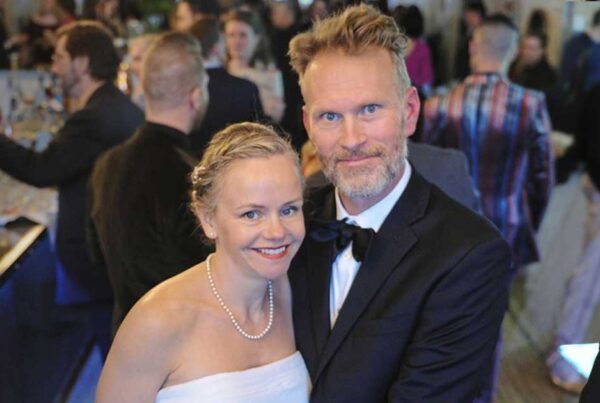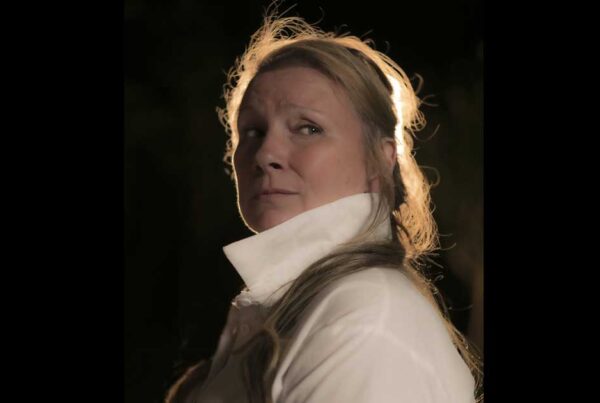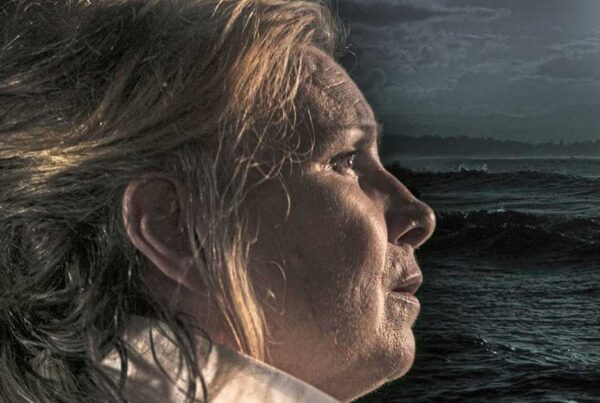
Pittsburgh City Paper – Right as I sat down to write this review, I received an email with the subject line “New Book Explores Early Shakespeare Authorship Doubts.” My first thought was, “Jesus, what is it now?”
As a middle-of-the-road Shakespeare fan — read a handful, attended a few shows, butchered the role of Robin Goodfellow in my high school’s A Midsummer Night’s Dream — my interest has never veered into the dude’s personal life.
But Vern Thiessen’s 2011 play Shakespeare’s Will, staged by Quantum Theatre through Sun., Dec. 1, probes the mythology of The Bard from the perspective of his wife, Anne Hathaway, and the results are thought-provoking and gratifying. Where many interpretations and theories about Shakespeare’s life mine artifacts and texts for clues, Thiessen’s work more or less tosses out objectivity, academia, and evidence to create a dramatic and entertaining story. Which is fitting, because, you know, Shakespeare.
If you don’t know much about Hathaway, join the club. She’s a pretty mysterious figure, but the program does include the most verifiable bullet points from her life: she was pregnant when they married; they had three children (Susanna, Hamnet, Judith); Shakespeare had a will in which he left Anne only the “second best bed with the furniture.” (For context, he left his sister Joan a sweet apartment to live in more or less rent-free until her death.)
This snub and its potential motivations are at the center of Shakespeare’s Will. It begins with Anne (Sheila McKenna) receiving Shakespeare’s will. The majority of the 90-minute one-act play is spent recalling the complexities of their relationship as Anne procrastinates reading her husband’s last testament for fear of what it might reveal. In Thiessen’s vision, Anne and Will have a decidedly modern arrangement, teetering on platonic, but not without genuine companionship and some form of love.
McKenna has the only speaking role in Shakespeare’s Will, and she shoulders the monologues admirably, as more of a modern independent woman than the female characters of her husband’s plays; she is not scheming, insane, or weak. Thiessen’s Anne is “at the center of her own story instead of relegated to a footnote in Will’s.”
The only other characters on stage are silent: a child (Simon Nigam) and a violinist (Dawn Posey), who provide physical presences for McKenna to work with while keeping the audience squarely in the confines of Anne’s head.
While some of the detours in Anne’s recollections slow things down a bit, the beginning and end are incredibly strong. And though the plot is inventive and the acting is strong, it’s the scenic design by Stephanie Mayer-Staley and direction from Melanie Dreyer that allow the production to really feel alive. The stage is transformed into a surreal setting, with ambitious elements that are best seen in person.
And the surrealism works, because like Anne’s dream-like memories of her life with Bill, Thiessen’s play is not of this world, not weighed down by historical accuracy. As he writes in the program, his script plays “fast and loose with the will and its meaning,” which is more revealing and entertaining than any other approach would be.




